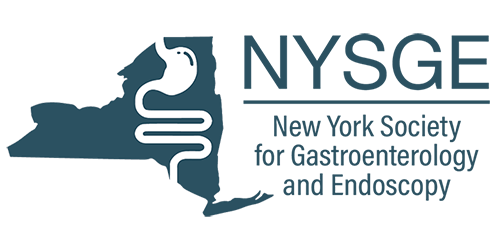Donate to the RED Fund
Make a Donation to the NYSGE Research and Education (RED) Fund
If supporting the advancement of gastroenterology and gastrointestinal endoscopy and improving patient outcomes is among your priorities, we encourage you to support the New York Society for Gastroenterology and Endoscopy Research and Education (RED) Fund with a donation.
Created by NYSGE leaders, the RED Fund secures financial support for fellowships, research grants, and educational resources for GI professionals at all stages of their careers.
Making your tax-deductible donation is easy. Simply choose a donation amount and indicate if your donation is in honor of someone special.
Thank you for supporting the rich history and ongoing mission of NYSGE with a RED Fund donation.
Mission Statement
Advance excellence in gastroenterology and gastrointestinal endoscopy; to disseminate related knowledge, and to teach endoscopic skills in an inclusive environment that enhances professional development and optimizes patient care.
Purpose of the education and research fund:
- Inspire innovation and foster research to improve endoscopic technology and techniques of diagnosis and therapy.
- Recognize changes in evidence-based medical practice, novel technologies and member needs, and disseminate relevant information and materials to members.
- The society hosts numerous seminars throughout the year, including an annual summer endoscopy course for new fellows, and sponsors the Annual New York Course, a major postgraduate endoscopy conference each December. NYSGE also endows the $10,000 Florence Lefcourt Award, which is presented for endoscopic research or community outreach initiatives.
Courses
Spring Course
The Spring Course is devoted to a review of the most compelling topics discussed during Digestive Disease Week® Our distinguished faculty will select and present the most important information about new drugs and drug therapies; medical, surgical and endoscopic treatments for disease, and the social impact of disease states pertaining to gastroenterology, endoscopy, and liver disease. The etiology and pathophysiology of disease states as well as the epidemiology of diseases will also be included.
Digestive Disease Week® is the most important academic forum in gastroenterology. The Spring Course: Best of DDW will present an excellent summary of DDW topics and include video of new endoscopic techniques.
GI Fellows Summer Course
Featuring a distinguished faculty from metropolitan New York, this course is designed to provide first-year GI fellows with an introduction to endoscopic techniques and clinical management of diseases of the digestive tract. Topics include upper and lower endoscopy, procedural sedation, colonoscopy, devices and tools for endoscopy, electrocautery, foreign body removal, pathology and radiology, percutaneous endoscopic gastrostomy, GI emergencies and upper and lower GI bleeding.
Annual Course
Under the direction of expert faculty, this course is designed to improve endoscopic practice and change the learner’s approach to a wide range of disorders of the GI tract. The course content will provide current evidence and algorithms to support an efficient but effective evaluation of GI disorders, followed by prompt initiation of appropriate therapy that is directed toward improving patient care and outcomes.
The knowledge base for gastrointestinal endoscopy continues to expand, accompanied and fueled by rapid growth in technological innovations. Advances in therapeutic endoscopy are challenging or replacing techniques that before were purely diagnostic. While maintaining standards of quality and safety, gastroenterologists must understand and effectively apply current and emerging diagnostic and treatment options to elevate practice levels and enhance patient outcomes.
This course will help participants improve their ability to accurately diagnose and effectively treat gastrointestinal diseases and disorders, enhance quality and safety in practice settings, recognize trends and technological advances in interventional endoscopic and surgical procedures, and foster an evidence-based approach to endoscopic decision-making for commonly encountered and controversial problems in gastroenterology.
